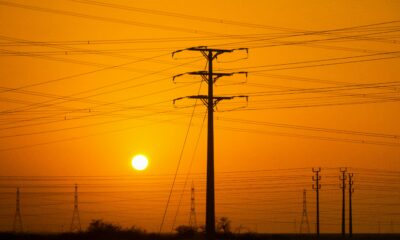Features
The Many Ways Nigerians Express “Omo”

Imagine yourself in a conversation with a friend, and a machine is placed at your side such that every time you say “omo”, the machine beeps. Believe me, before the end of that conversation, the machine would have beeped life out of itself because you’d say omo countless times. Workplaces don’t even consider the word to be unofficial anymore.
Giving it a closer look, we are examining the semantic ambiguity of the word, and its superfluous usage amongst Nigerians. Below, you’d find several meanings for the Nigerian homographic word, omo. Usually, the usage of this word is attached to corresponding emotion or feeling or occurrence.
The tired omo
This is the kind of omo Nigerians use when they just finish a huge task or return from a stressful job. You sink into your chair, tired and let out the word forcefully. Sometimes, there’s an ‘ah’ before it. Ah, omo! Or sometimes, a hiss. Imagine omo is the word you say when you wake in the morning, that your voice sounds as if your vocal cords are pressed against each other, huh? Yeah, that’s it. That’s the tired omo.
The happy omo
The happy omo is usually more elongated than others; omoooo. Nigerians use this omo when something exciting happens to them or when they are in the middle of a conversation and someone tips in a joke that throws them up. Imagine Sabinus displaying his mumuness in one of his skits, and you don’t know when you burst out laughing. This kind of laughter comes with a long omoooo.
The elongated omo
This is called elongated omo not because it sounds like the happy omo, but because it also comes out as omooooo but in a different way. It doesn’t come out just once. It comes out like an ascension with steps. Nigerians use this when they encounter something shocking but not so shocking. Like when you realise the dollar is rising again. They would say, “omo, omoo, omoooo, dollar don dey rise again!”
The MFJPM omo
This kind of omo comes when someone is trying to draw you into a long conversation, especially one you’re not interested in. So you let them talk and talk and when they’re done, you go “omo”. This way, it doesn’t feel like you did not contribute to the conversation at all, but it also sends a signal that the conversation is unresourceful and needs to end. In short, you’re telling them, mafejopami – don’t kill me with talk.
The assistant omo
Imagine you’re in a conversation and you lose track of your words. Instead of you to use fillers like ‘erm, erm erm’, Nigerians simply say omo to get their coherency back. Not everyone uses this sha but it’s common.
The wandering omo
This kind of omo just finds itself in your utterances, unsummoned. This is when you hear Nigerians make expressions like, “omo, life hard o,” “omo, this stew sweet o,” “omo, no forget that thing o.” Nobody calls on that omo, it just jumps into utterances.
The just omo
As its name implies, it is just omo. This kind of omo is like a stone, emotionless. It is the kind of omo you say when you are not feeling anything but just want to say something. Or the kind you’d say while stretching. Or when you finish yawning or sneezing and instead of saying “excuse me,” you say “omo”.
In 2020, some Nigerian expressions were included in the Oxford English Dictionary. We are moving a motion that omo should also be included because, come on, it’s definitely a part of our lingua franca now. Omo has also convinced us that it is capable of falling under a part of speech. Maybe under preposition? We don’t know. We leave that to our linguists to sort that out with Oxford. For now, #justiceforomo.






















